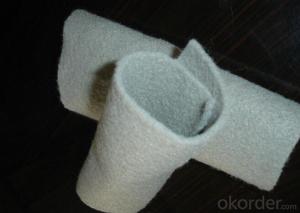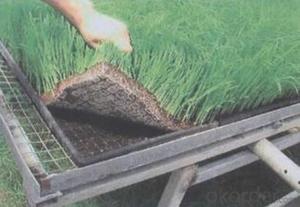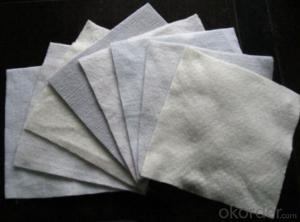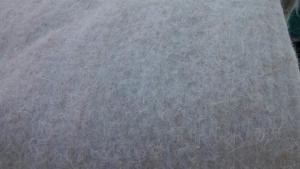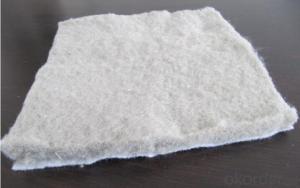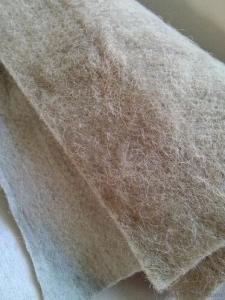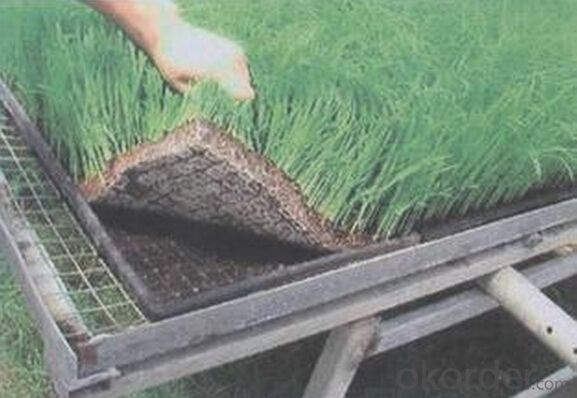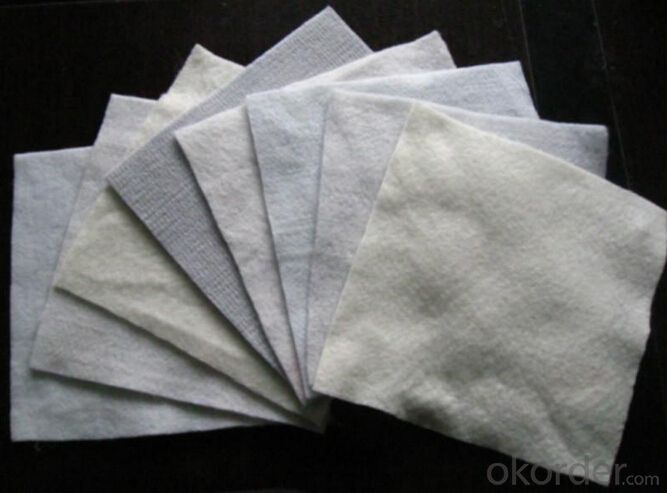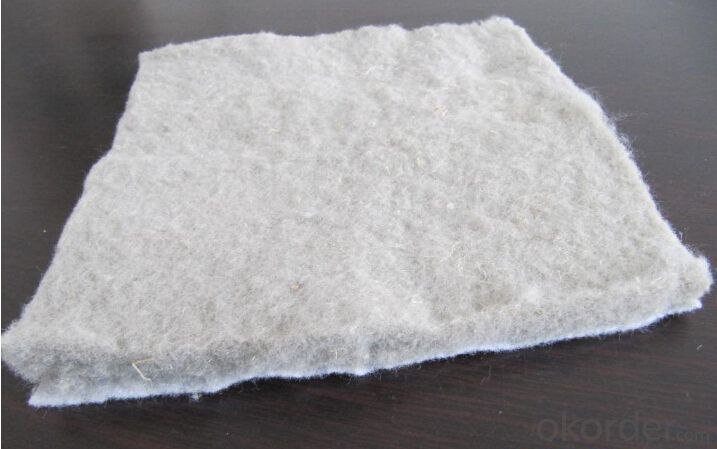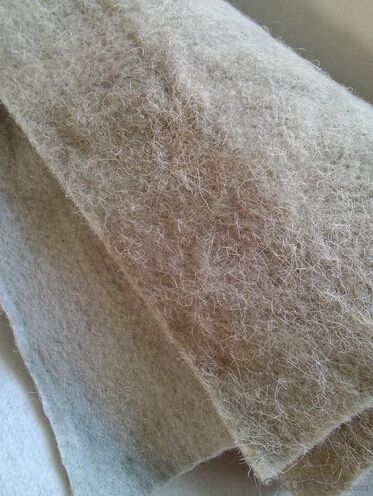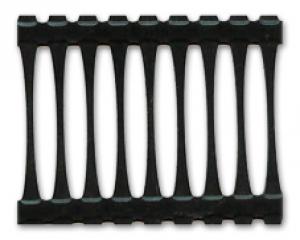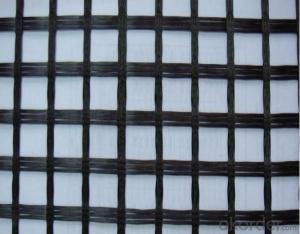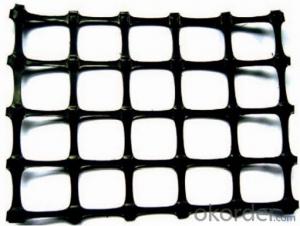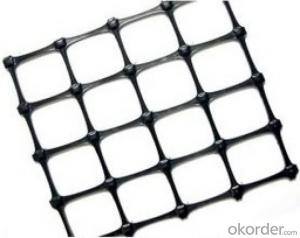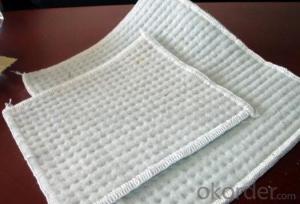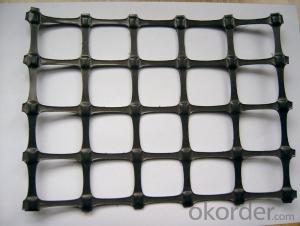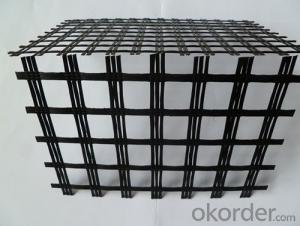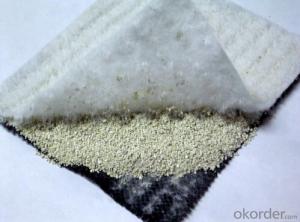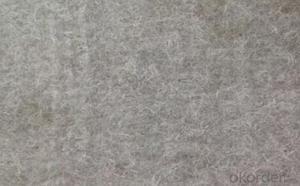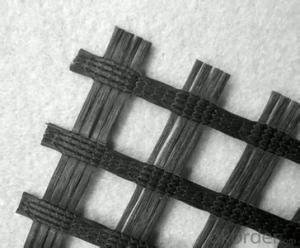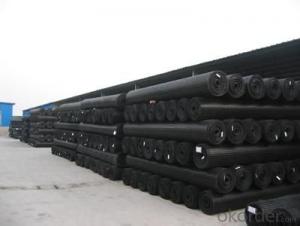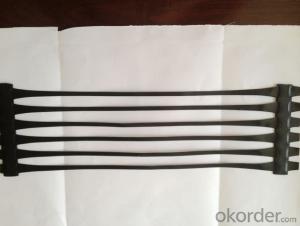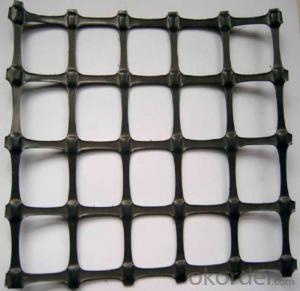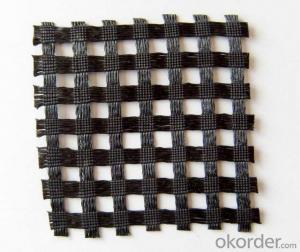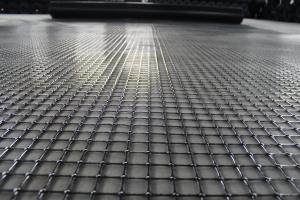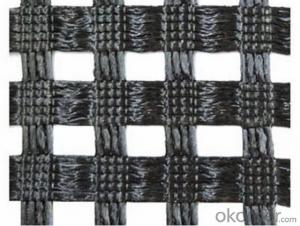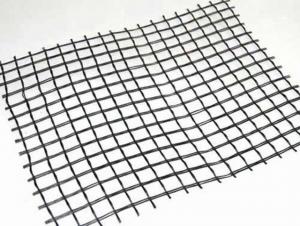Nutrition Geotextile Geogrids for Greening - Factory Supply from Thailand
- Loading Port:
- Qingdao
- Payment Terms:
- TT OR LC
- Min Order Qty:
- 5000 m²
- Supply Capability:
- 2000000 m²/month
OKorder Service Pledge
OKorder Financial Service
You Might Also Like
Nutrition geotextile in water environmental engineering .
Specification:
Separation: the loss of two or more materials, not mixed, maintain the overall structure and functional materials, the load bearing capacity of strengthened structures.
Filtration: when the water flows into the coarse material by fine soil layer, the use of staple fiber needle punched geotextile has good air permeability and water permeability, allows water to flow through, and effectively carrying current soil particles, sand, small stones and so on, in order to maintain the stability of soil and water engineering.
Drainage: the water guide with good properties and short fiber needle punched geotextile, it can be formed inside the soil drainage channel, the excess liquid and gas in the outer row of soil structure.
Reinforcement: the tensile strength of the reinforced soil and anti deformation capacity utilization of staple fiber needle punched geotextile, enhanced the stability of structures, to improve the soil quality.
Protection and maintenance function: water on soil erosion, effective will be concentrated stress diffusion, transfer or decomposition, to prevent soil from damage by external force.
Good flexbility, resistant to corrosion, resistant to acids and alkalis, anti-oxidation.
Product Feature:
1. Simple and fast construction
2. Achieve the greening effect quickly after construction
3. Due to the grass and composite fiber fabrics become into one integration, so it has the ability of certain degree of flow resistance for the water rising before the grass survive.
4. Composite fiber fabric is a continuous structure from slope top to slope toe, both ends are fixed, has high water flow resistance.
Technical Specification
5.0 m length and 1.05 m width. Reverse side all used filter material. Grass seeds: Bermuda grass (warm season grass), Bahia grass (warm season grass), Kentucky bluegrass (cold season grass), Tall fescue grass (cold season grass), Red fescue grass (cold season grass). Plant height: 0.1 ~ 0.5 m.
| NO. | Items | Specification | Notes | |||
| 1 | Total unit area weight g/sq.m | ≥380 | ||||
| 2 | dimension | width m | 1.0~2.0 | |||
| length m | as per user’s request | |||||
| 3 | Composite fiber fabrics | Material | Polyester Fiber | High strength PET | ||
| Unit area weight g/sq.m | ≥160 | |||||
| Mesh dimension mm | 8×8 | |||||
| Extension strengh kn/m | ≥11 | MD & CD | ||||
| 4 | Filtra layer | Material | Polyester non woven geotextile | |||
| Unit area weight g/sq.m | ≥40 | |||||
| 5 | Grass seeds, Fertilizer | Type | According to actual situation choose 3~5 grass seeds | |||
| Plant height m | 0.1~0.3 | |||||
| 6 | Fiber layer | Material | wood pulp cellulose | |||
| Unit areaweight g/sq.m | ≥15 | |||||
| 7 | flow resistance | ≥4 | not allow appear scour, suction and blanket turn-over etc. damage phenomenon | |||
| M/s | ||||||
| 8 | Anti-UV strengh conservation rate % | 65~80 | 3000hrs Continuously exposure 3000hrs | |||
| 9 | Supporting spare parts | ABS fastening nail | Material | ABS Resin | Fixed between two blankets by length direction | |
| Fiber diameter mm | 35 | |||||
| Nail length mm | 325 | |||||
| Lnail | Material | Steel wire (content 10% zinc-aluminium alloy) | Used to fix single blanket | |||
| Fiber diameter mm | 4 | |||||
| Nail length mm | 200 | |||||
| ABS connecting nail | Material | ABS Resin | Used in the slope between the two blankets ( width direction) | |||
| Nail length mm | 38 | |||||
| Connecting fiber | Material | High strength Polypropylene | Used in the slope between the two blankets ( width direction) | |||
| Length mm | Cut as per request | |||||
APPLICATION:
Generally laid on the river channel, slope protection etc. slope revetment projects, to control the water erosion, soil loss, meantime can reach the effect of slope ecological restoration and landscape greening, making river back to natural.
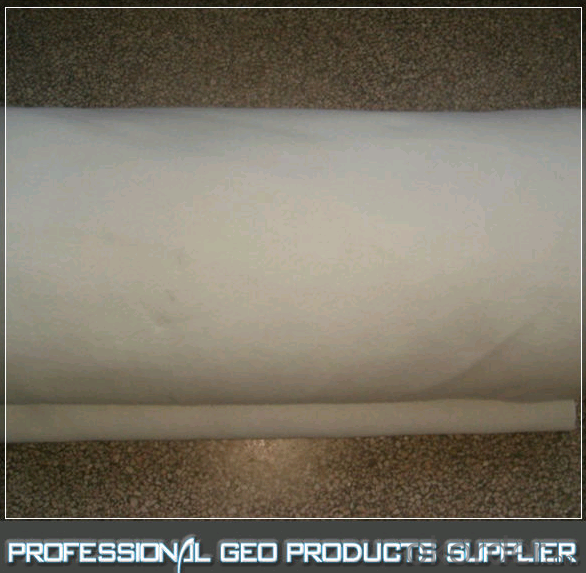
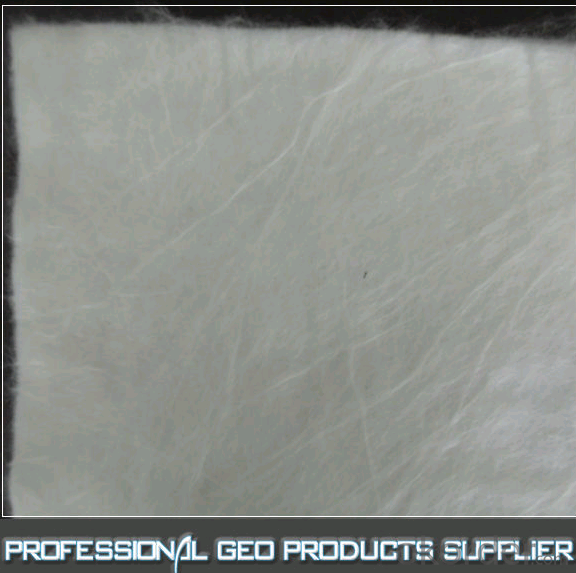
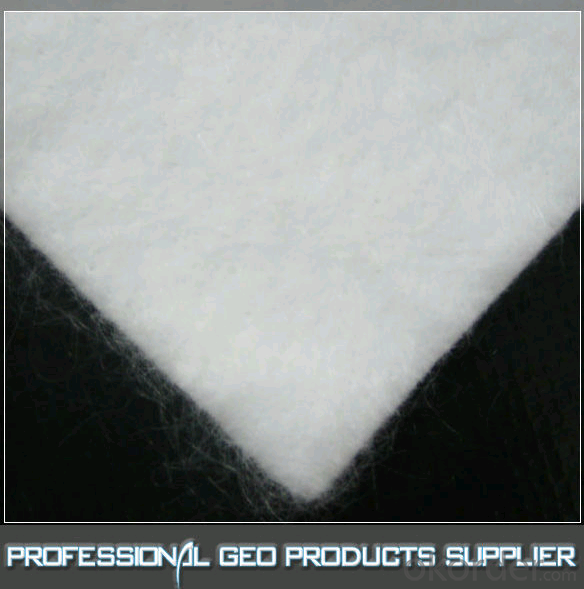
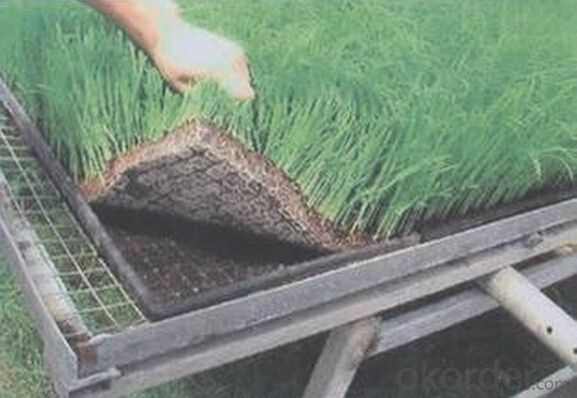
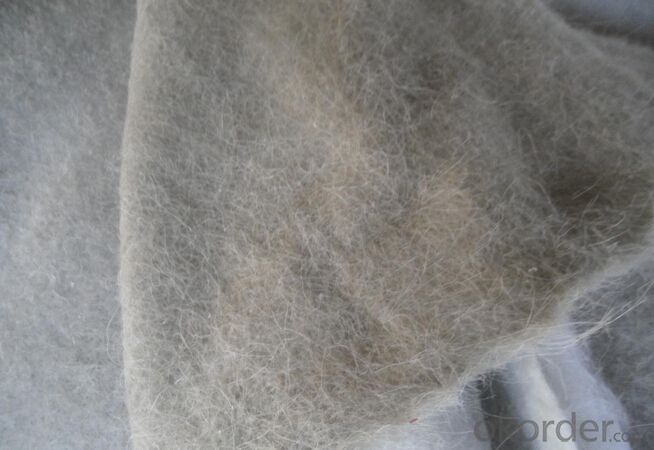
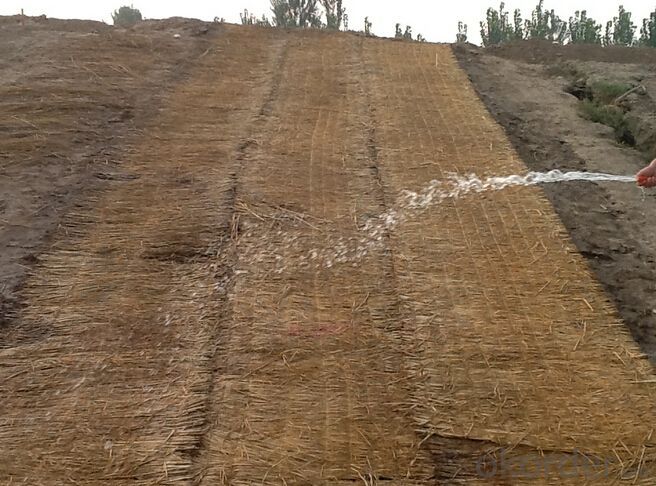
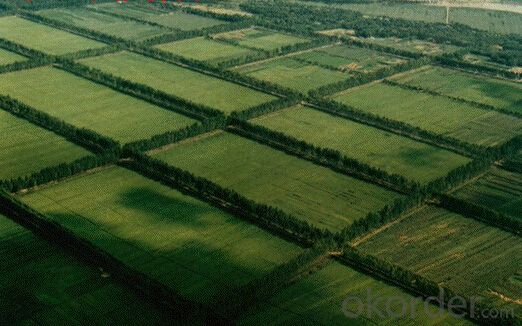
FAQ
1. How about the delivery time?
Lead time since receipt of 30% T/T deposit payment: 3 weeks.
2. What kind of payments does we support?
T/T, L/C, Cash are accepted.
3. What's are the MOQ?
We can according to your condition to set the MOQ.
And we can provide you samples for quality inspection.
4. How to deal with the sample charge?
Accordeing to our company policy, the samples are free, we only charge the freight fee.
And we will return the freight fee If you set the order .
5. Can you produce the product according to customers' requirements ?
Sure, we are professional manufacturer, OEM and ODM are both welcome.
6. Can you tell me your main customers?
That's our customers' privacy, we should protect their information.
At the same time, please rest assured that your information is also safe here.
- Q: How do geogrids improve the performance of geotextile-reinforced embankments?
- Geogrids improve the performance of geotextile-reinforced embankments by providing additional reinforcement and stability. They help distribute the load more evenly across the embankment, reducing settlement and preventing soil erosion. Geogrids also enhance the overall strength and integrity of the embankment, allowing it to withstand higher loads and pressures.
- Q: way grille HS codingAlso do not know what is the basis of the grid HS code pointsAlas! !Thanks in advance!!!Hard, can you tell me how much is the tax rebate rate? Thank you
- 39173900 porous high strength grid type communication casing39259000 round bar profile pultruded glass fiber reinforced plastic grille
- Q: How do geogrids compare to other soil reinforcement methods?
- Geogrids offer several advantages over other soil reinforcement methods. They are cost-effective, easy to install, and have a high tensile strength. Additionally, geogrids provide excellent soil stabilization and can withstand heavy loads, making them a preferred choice in various applications such as retaining walls, slopes, and road construction.
- Q: Can geogrids be used in railway construction?
- Yes, geogrids can be used in railway construction. Geogrids are commonly used to reinforce and stabilize the railway track substructure, providing improved load distribution and preventing soil movement. They help to increase the overall strength and stability of the track, making it more resistant to deformation and settlement. Additionally, geogrids can help reduce the maintenance needs of the railway infrastructure, making them a beneficial solution for railway construction projects.
- Q: Can geogrids be used in soil erosion control for agriculture?
- Yes, geogrids can be used in soil erosion control for agriculture. Geogrids are commonly used to reinforce and stabilize soil, preventing erosion caused by water runoff or wind. They provide strength and stability to the soil, reducing the risk of erosion and preserving the integrity of agricultural land.
- Q: What is the difference between Geogrid and geogrid
- Glass fiber mesh used in exterior wall, interior wall paint, mainly to prevent cracking, different materials at the junction of mortar plastering material hollowing. Local node reinforcement will also be used. Geotextile has excellent filtration, drainage, isolation, reinforcement, seepage prevention, protection, light weight, high tensile strength, good permeability, high temperature resistance, anti freezing, anti-aging, corrosion resistance. Common non-wovenUsed in the water layer, polyethylene polypropylene fiber waterproof is also used.
- Q: Are geogrids resistant to acid degradation?
- Yes, geogrids are typically resistant to acid degradation.
- Q: Can geogrids be used in reinforcement of rail embankments and cuttings?
- Yes, geogrids can be used in the reinforcement of rail embankments and cuttings. Geogrids are commonly utilized in civil engineering projects to improve the stability and strength of soil structures. By incorporating geogrids into rail embankments and cuttings, the soil is effectively reinforced, preventing erosion, reducing settlement, and enhancing overall stability. This reinforcement technique helps to ensure the longevity and safety of rail infrastructure.
- Q: What is the recommended geogrid connection method for specific applications?
- The recommended geogrid connection method for specific applications may vary depending on factors such as soil type, slope angle, and load requirements. However, common geogrid connection methods include mechanical connections through the use of connector plates or hog rings, as well as adhesive connections using geogrid-specific adhesives. It is crucial to consult the manufacturer's guidelines and seek professional advice to determine the most suitable connection method for a particular application.
- Q: Can geogrids be used in reinforcement of underground storage tanks?
- Yes, geogrids can be used in the reinforcement of underground storage tanks. Geogrids are commonly used in civil engineering applications to improve the stability and load-bearing capacity of soil structures. When used in the reinforcement of underground storage tanks, geogrids help distribute the load more evenly, reduce stress on the tank walls, and increase the overall strength and stability of the tank system.
Send your message to us
Nutrition Geotextile Geogrids for Greening - Factory Supply from Thailand
- Loading Port:
- Qingdao
- Payment Terms:
- TT OR LC
- Min Order Qty:
- 5000 m²
- Supply Capability:
- 2000000 m²/month
OKorder Service Pledge
OKorder Financial Service
Similar products
Hot products
Hot Searches
Related keywords
